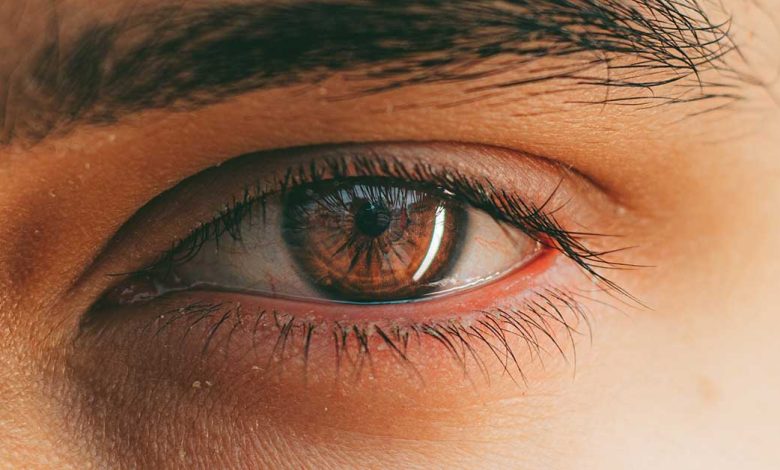What Are Eye Floaters? Here What To Do If you Start Seeing Them, According to an Eye Doctor

Have you ever noticed tiny shapes drifting across your vision? They might look like little squiggly lines, specks, or even cobwebs. These are what eye doctors call “eye floaters,” and they’re a very common visual experience. While they can be a bit alarming at first, understanding what they are and when to seek professional help can provide peace of mind.
ADVERTISEMENT
What Exactly Are Eye Floaters?
ADVERTISEMENT
Imagine looking at a clear blue sky or a bright white wall, and suddenly, you see small shapes moving around. These shapes, or floaters, appear to drift within your field of vision. They might look like spots, threads, or even small, moving shadows. One of the most interesting things about them is that they move as your eyes move, and they often seem to dart away when you try to focus directly on them.
ADVERTISEMENT
What Causes These Floaters?
The most common cause of eye floaters is a natural, age-related change inside your eye. Your eye is filled with a gel-like substance called the vitreous. As you get older, this gel becomes more liquid. Tiny microscopic fibers within the vitreous can clump together, and these clumps cast shadows on your retina, the light-sensitive tissue at the back of your eye. These shadows are what you see as floaters.
However, it’s important to know that floaters can sometimes be linked to more serious eye conditions. These conditions include:
- Eye infections: Infections within the eye can cause inflammation and lead to the formation of floaters.
- Uveitis: This is an inflammation of the uvea, the middle layer of the eye, and it can also cause floaters.
- Retinal tears or detachment: These are serious conditions where the retina either tears or separates from the back of the eye.
Who Is More Likely to Experience Floaters?
While anyone can experience floaters, some people are at a higher risk. This includes individuals who:
- Are nearsighted (myopic).
- Have had cataract surgery.
- Have diabetes, which can lead to a condition called diabetic retinopathy.
- Are experiencing the natural aging process.
Important Symptoms to Watch Out For
Most of the time, eye floaters are harmless and nothing to worry about. However, there are certain symptoms that should prompt you to seek immediate medical attention. These include:
- A sudden increase in the number of floaters you see.
- Flashes of light in your vision.
- A shadow or dark curtain appearing in your peripheral vision.
These symptoms could indicate a retinal tear or detachment, which is a medical emergency that requires prompt treatment to prevent vision loss.
How Are Floaters Diagnosed?
An eye doctor can diagnose floaters through a dilated eye exam. During this exam, they will use eye drops to widen your pupils, allowing them to get a clear view of your vitreous and retina. This exam helps them identify any abnormalities or underlying issues.
When Do Floaters Require Urgent Medical Attention?
As mentioned earlier, while most floaters are benign, certain symptoms are red flags:
- A sudden and noticeable increase in floaters.
- Seeing flashes of light.
- The appearance of a dark curtain or shadow moving across your vision.
These signs could indicate a retinal detachment or tear, requiring immediate medical intervention to avoid potential vision loss.
Treatment Options for Eye Floaters
In many cases, eye floaters will become less noticeable over time, and no treatment is necessary. However, for those experiencing significant vision impairment, there are treatment options available:
- Vitrectomy: This is a surgical procedure where the vitreous gel is removed and replaced with a saline solution.
- Laser Therapy: This treatment uses lasers to break up the floaters, making them less noticeable.
It’s important to note that both of these treatments carry risks, including infection and retinal damage, so they are typically reserved for severe cases.
Lifestyle Tips for Managing Mild Floaters
If your floaters are mild and not significantly affecting your vision, there are some lifestyle changes you can make to help manage them:
- Eye exercises: Moving your eyes up and down can sometimes shift the floaters out of your line of sight.
- Diet and supplements: Maintaining a healthy diet rich in omega-3 fatty acids, vitamin A, and zinc can support overall eye health.
- Avoid smoking: Smoking can worsen eye problems and negatively impact your overall eye health.
Preventing Problems and Maintaining Eye Health
While floaters are often a natural part of aging, regular eye check-ups are essential for early detection of any potential issues. As Dr. Rick Ansorge emphasizes, “If you experience any sudden changes in your vision, seek medical advice immediately.”
For most people, eye floaters are a harmless annoyance.
By understanding what they are, what causes them, and when to seek medical attention, you can better manage this common condition and protect your vision for years to come. Regular eye exams and awareness of any changes in your vision are your best defense against more serious eye problems.




